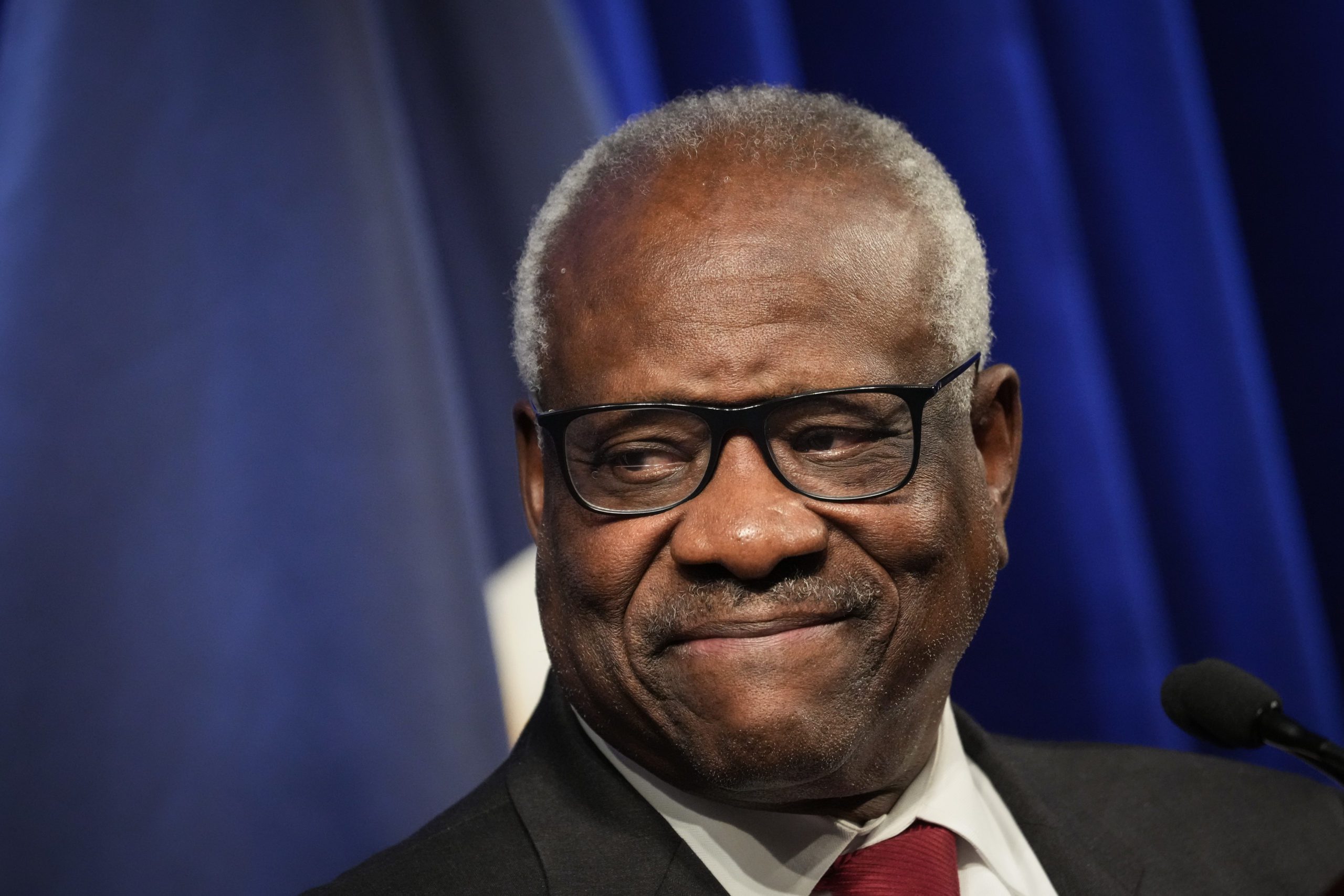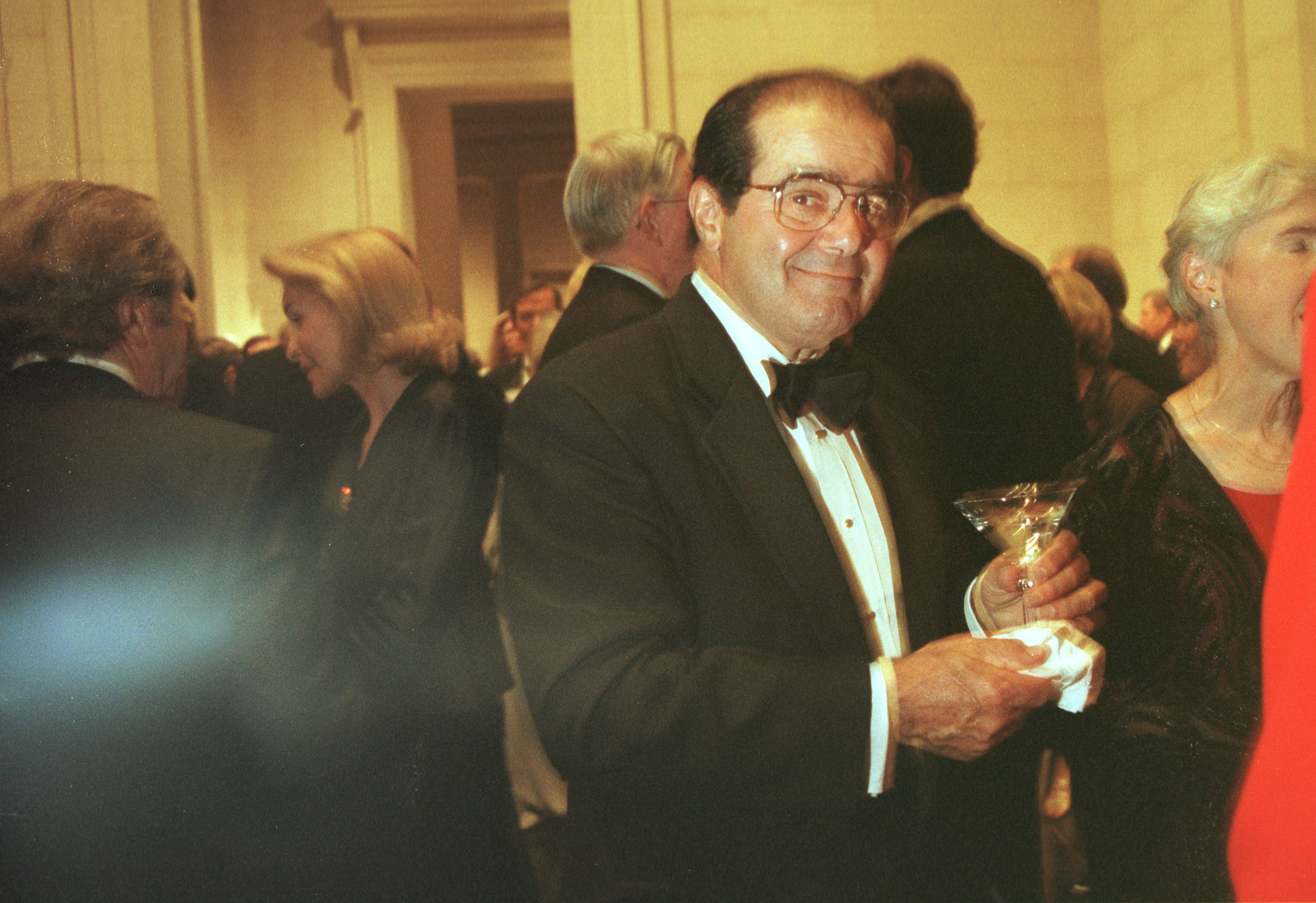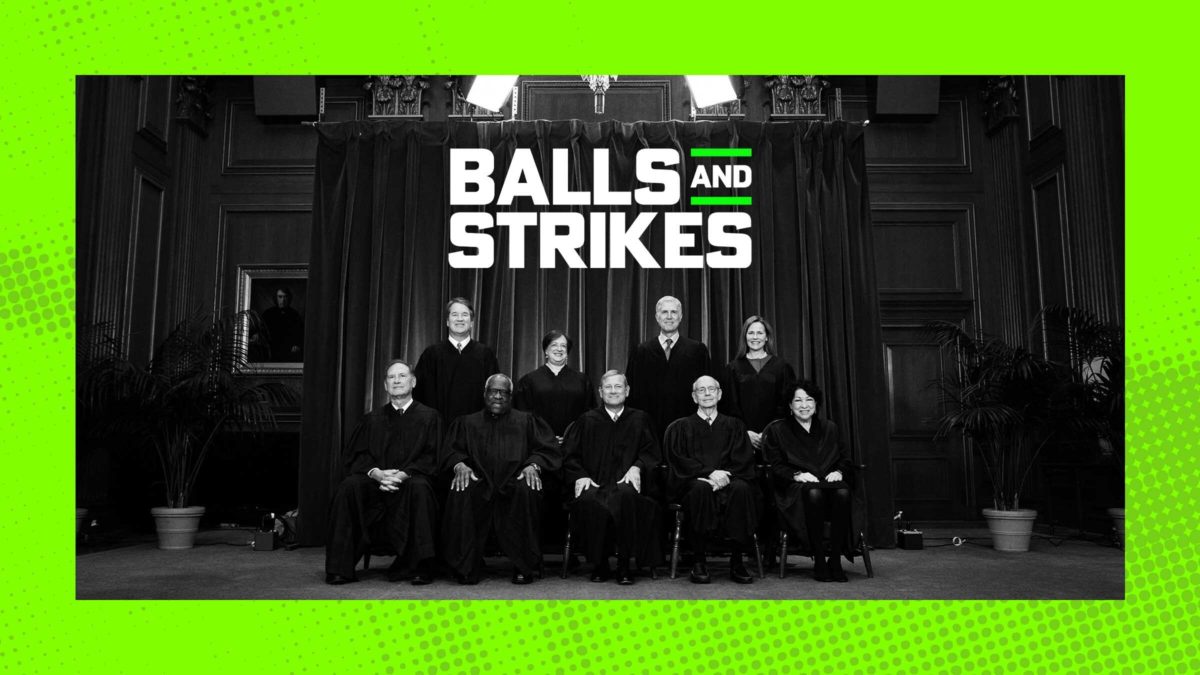I’m currently reading Strange Justice, Jane Mayer and Jill Abramson’s biography of Justice Clarence Thomas. Published in 1994, just three years after his confirmation to the Supreme Court, the book is an exhaustively researched account of the process of packaging Thomas as a juggernaut of a judicial candidate, practically assembled in a lab to push the conservative policy agenda from the life-tenured comfort of the federal bench. By the time law professor Anita Hill came forward with allegations that Thomas sexually harassed her while the two were colleagues at the Equal Employment Opportunity Commission, which Thomas had chaired, Senate Republicans were too enamored with the decades of reactionary jurisprudence his confirmation promised to even consider taking her seriously.
A recurring theme of Strange Justice is that large swaths of Thomas’s mythology are cynical half-truths at best. Childhood friends dispute the bootstraps narrative that he grew up poor in Pin Point, Georgia, for example, noting that he attended well-regarded Savannah-area private schools after first grade. The grandfather who raised Thomas, and whom Thomas often cited as his hero—his 2007 memoir is titled My Grandfather’s Son—was “barely on speaking terms” with Thomas when the older man died in 1983. Throughout, Mayer and Abramson portray Thomas as a savvy networker and opportunistic politician who, even as a junior Senate aide, was already telling people that he would one day become a Supreme Court justice.
Today, however, we are not going to spend more time discussing the harm that Clarence Thomas’s subsequent 30-year Supreme Court tenure has wrought. Instead, we are going to consider the evidence that young Clarence Thomas was—and I am sorry in advance for the legal jargon here—the worst fucking roommate of all time.

When the hotel has free HBO (Photo by Drew Angerer/Getty Images)
In the early 1980s, Thomas was kind of Going Through It: He’d separated from his then-wife, Kathy Ambush, making him a bachelor in his early thirties for basically the first time in his life. And especially in his younger years, Mayer and Abramson’s sources recall Thomas as a pornography aficionado who would enthusiastically discuss it with anyone within earshot. A colleague who stopped by his studio apartment shortly after he’d moved in remembered encountering a mattress on the floor, a stereo system, and “a huge, compulsively organized stack of Playboy magazines, five years’ worth of them, organized by month and year.” Thomas had also papered every wall, including those in the kitchen, with centerfolds of nude women, joking (?) to his unnerved colleague that the magazines were the only things worth taking from his marriage.
Just prior to embarking on this grim misadventure in interior decoration, Thomas had lived in the spare bedroom of Gil Hardy, a college buddy who was navigating his own divorce. Thomas was known for getting up at 4 AM to lift weights, and according to a girlfriend of Hardy’s, the future Supreme Court justice maintained a very particular morning ritual: Cranking “The Greatest Love of All,” George Benson’s 1977 tribute to the virtues of loving oneself, loudly enough to wake her up in the next room.
Clip via YouTube
I should emphasize that Hill’s claims about Thomas, including his alleged predilection for discussing his preferred porn genres in graphic detail, were and remain important because the conduct occurred at work. Off the clock, what adults read and view and talk about with non-colleagues is generally their business (even if, were Thomas your acquaintance, you might ask him to change the subject, and find a reason to be busy next time he asked to hang out). During Thomas’s confirmation hearings, that former colleague reached out to then-Senate Judiciary Committee chair Joe Biden, offering to testify about her visit to Thomas’s memorably-furnished apartment. But as Abramson and Mayer write, among the reasons Biden didn’t push Thomas on this issue was his understanding that millions of adults, judicial nominees and non-nominees alike, consume pornography in the privacy of their homes, and might be uncomfortable seeing someone humiliated on national television for it.
I should also note that Benson’s rendition of “The Greatest Love Of All,” although it pales in comparison to Whitney Houston’s chart-topping 1985 cover, is a pretty unobjectionable choice as far as anthems go. Benson recorded his version for the soundtrack to The Greatest, a 1977 Muhammed Ali biopic. When it comes to soaring, inspirational ballads associated with Muhammed Ali biopics, you could do a LOT worse.
I am simply bringing all this up because of the image it calls to mind: Clarence Thomas, the modern conservative legal movement’s budding superstar, waltzing around a sparsely furnished bedroom in the predawn gloom, weaving between teetering stacks of Playboy, closing his eyes and pumping his fist at each crescendo, breaking out the air violin every time the chorus hits, blissfully unaware of his groggy roommate pounding on the wall, pleading with him to turn that shit down, do you even know what time it is? If I found myself living this waking nightmare, I’d be sliding apartments-for-rent listings underneath the guy’s door within 48 hours. At least he’d have something else to look at.
As always, you can find us at ballsandstrikes.org, or follow us on Twitter @ballsstrikes, or get in touch via [email protected]. Thanks for reading.
This Week In Balls & Strikes
How Professors Can Teach Constitutional Law While the Supreme Court Is Wrecking It, G.S. Hans
Law school teaches students that lawyers and judges are at the vanguard of protecting those who lack political power. They are not.
The Supreme Court Treats Racist Police Violence Like It Does Not Exist, Yvette Borja
How the Court’s Fourth Amendment jurisprudence transforms the desire to avoid dangerous encounters with police into a justification for more police harassment and violence.
The Supreme Court’s War On the Poor Is About to Get Much Worse, Zach Outzen
You will notice a theme in these descriptions!
This Week In Other Stuff We Appreciated
Post-Roe, the Supreme Court Is On a Collision Course With Democracy, Cristian Farias, Vanity Fair
The justices’ decision in Dobbs is just a preview of what’s to come.
The Truly Scary Part of the $1.6 Billion Conservative Donation, Dahlia Lithwick and Rick Hasen, Slate
No one man should have all that power (that Leonard Leo enjoys).
The Sins of the High Court’s Supreme Catholics, James Carroll, The New Yorker
The justices find themselves at the head of both secular and religious reactionary movements.
This Week In Obscure Photos of Supreme Court Justices On Getty Images


